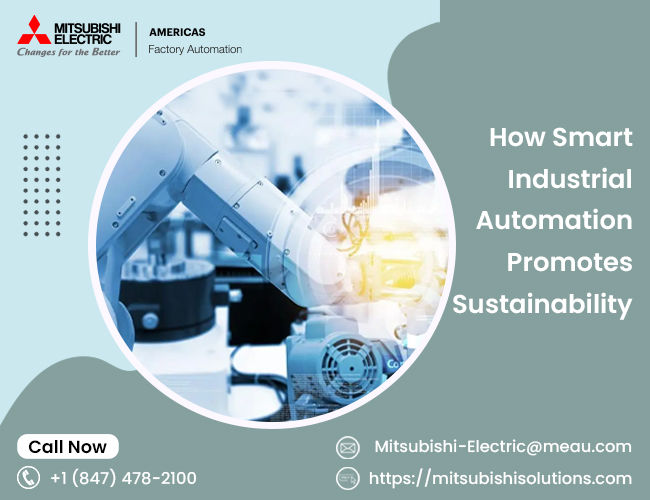How Smart Industrial Automation Promotes Sustainability
- mitsubishielectric1
- Dec 14, 2022
- 2 min read
Manufacturing is a source of the goods and services required for human health, safety, and well-being in modern society and is connected with all aspects of human life. The term "sustainable manufacturing" relates to all industrial processes, starting right from the factory till the final point of consumption, as well as all intermediate stages. Industrial 4.0 offers smart automation manufacturing methods that can address this need.
Why Is Sustainability A Point Of Focus?
In terms of global economic transformation, sustainability represents the third wave. All companies are focusing on the transition to net-zero carbon emissions.
Investors, shareholders, customers, and employees demand goods and services with lower carbon footprints that are produced responsibly. A full-lifecycle approach is required to reduce carbon output, waste, and social injustice.

How Can Smart Automation Accelerate A Sustainable Journey?
Through new technologies like smart automation manufacturing, automated packaging line, Industry 4.0 promises to improve production processes and business models. These technologies could quicken the adoption of sustainable power in manufacturing, lower carbon emissions, better energy utilization, increase productivity, and result in cost savings.
Following could be some of the practices that can assist sustainability:
• Resource And Inventory Planning:
Resource planning in general can help in reducing emission and a company's overall environmental effect.
• Optimized Manufacturing Processes:
It preserves energy and natural resources, reduces negative environmental effects, and creates safe working conditions.
• Energy-Efficient Operation:
Operating equipment with energy efficient methods not only reduces the overall carbon footprint but also creates a cleaner working environment.
• Sustainable Product Designs:
Up to 45% of a product's lifecycle emissions are decided by decisions made during the design phase, according to a recent McKinsey analysis. Hence, sustainable product designs can make a great difference.
• Optimized Logistics:
Delivery utilizing load-optimized logistics techniques can reduce distances and carbon footprint.
• Sustainability Control:
Based on economic and environmental, social, and governance (ESG) indices, it helps businesses towards becoming intelligent and sustainable, enabling them to properly measure global effect both within their operations and beyond their business networks.
The Takeaway
Traditionally, the word "sustainable development" has been defined as being ecologically friendly. However, in modern usage, the term "sustainable development" encompasses three aspects: social, environmental and economic. In order to create a society with the proper equilibrium, it is necessary to achieve sustainable and rational growth. Mitsubishi electric automation has been a pioneer in the industry 4.0 solutions and has given contributions in the overall sustainability as well.

.png)



Comments